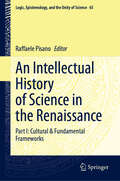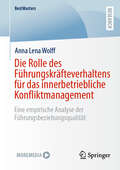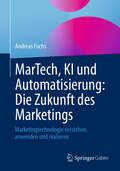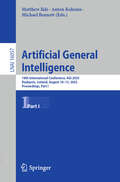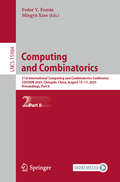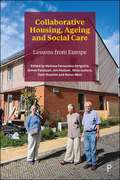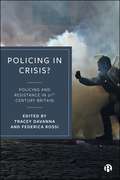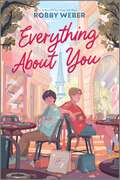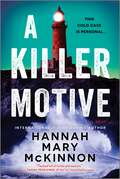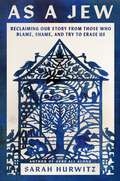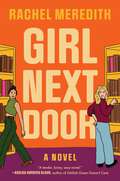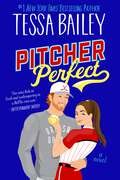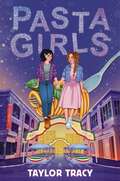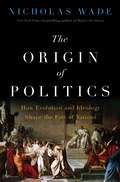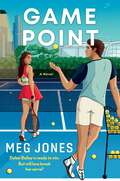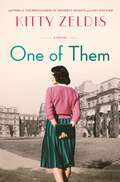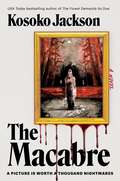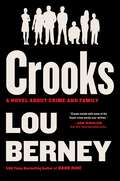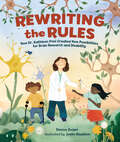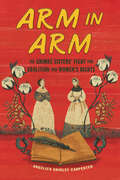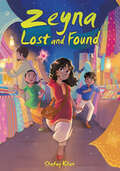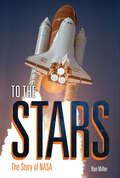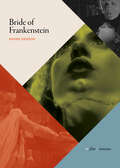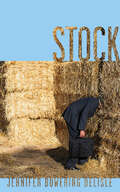- Table View
- List View
An Intellectual History of Science in the Renaissance: Part I: Cultural & Fundamental Frameworks (Logic, Epistemology, and the Unity of Science #65)
by Raffaele PisanoThis first of a two-part volume (Book I) deals with a unit intellectual cultural history of science in the Renaissance within fundamental frameworks. An intellectual cultural history of science examines how human and their intellectual experiences have been expressed in, and emerged by scientific ideas. Taking into account the excellence of the essays – which cover several branches and disciplines in history and epistemology of science – this book also provides perspectives on the enduring influence of a historiographical tradition, e.g., the emergence of fundamental works on mathematics and geometry, household&’s principal functions, food and culture, clock instrumentation, surgery as a practical branch of medicine. It describes the ways it differently accounted for variation in unlike countries and consequently how its results remain, still nowadays, a debated question, as well as due to constraints preventing an extensive exploration of its remarkable historiography. This volume gathers selected and double peer review contributions by historians of physics/mathematics/science as new fundamental perceptions in the history of science during the Renaissance, ranging across several fields of science within its intellectual and cultural history. The book is an accessible avenue to understanding cultural issues to develop scientific ideas by leading authorities who offer much-needed historical insights into the field of intellectual and fundamental history of science. It provides an absorbing and revealing read for historians, philosophers and scientists alike.
Die Rolle des Führungskräfteverhaltens für das innerbetriebliche Konfliktmanagement: Eine empirische Analyse der Führungsbeziehungsqualität (BestMasters)
by Anna Lena WolffDiese empirische Studie beleuchtete den Zusammenhang zwischen Führungsbeziehungsqualität (Leader-Member Exchange) und dem Konfliktverhalten von Mitarbeitenden gegenüber ihren Vorgesetzten. Mittels einer Online-Befragung von 111 Personen wurden Daten zu ihren Erfahrungen mit Führungskräften und ihrem Konfliktverhalten (basierend auf Rahims Konfliktmodell) erhoben. Die Ergebnisse zeigen eine signifikant positive Korrelation zwischen hoher Führungsbeziehungsqualität und den kooperativen Konfliktverhaltensweisen Integration und Nachgeben. Das deutet darauf hin, dass Mitarbeitende bei einer starken Beziehung zur Führungskraft eher zur Kooperation neigen. Für Kompromiss, Vermeiden und Durchsetzen wurden keine signifikanten Zusammenhänge gefunden. Die Studie liefert somit Hinweise, dass die Förderung hochwertiger Führungsbeziehungen (z.B. durch Kommunikationsschulungen, Mentoring) kooperatives Konfliktmanagement im Unternehmen stärkt und somit zur Wettbewerbsfähigkeit beitragen kann. Einschränkungen in der Reliabilität und Validität wurden dabei reflektiert.
MarTech, KI und Automatisierung: Marketingtechnologie verstehen, anwenden und skalieren
by Andreas FuchsDas Marketing erlebt einen radikalen Wandel: Unternehmen stehen vor der Herausforderung, eine Flut an Technologien, Daten und Automatisierungsmöglichkeiten strategisch zu nutzen. Doch wie setzt man MarTech und Künstliche Intelligenz gezielt ein, um Wettbewerbsvorteile zu sichern? Dieses Buch verbindet wissenschaftlich fundierte Erkenntnisse mit praxisnahen Best Practices und hilft dabei, Klarheit in die oft unübersichtliche MarTech-Landschaft zu bringen. Andreas Fuchs zeigt, wie Unternehmen ihre Datenbasis optimal nutzen, personalisierte Kundenerlebnisse schaffen und Marketingprozesse intelligent orchestrieren. Das Marketing Technology Framework bildet dabei die strukturierte Grundlage – von der Datenstrategie über smarte Segmentierung bis hin zur kanalübergreifenden Kundeninteraktion. Zahlreiche Praxisbeispiele und konkrete Handlungsempfehlungen machen das Buch zu einem unverzichtbaren Leitfaden für alle, die MarTech als echten Wachstumsmotor nutzen möchten. Der Inhalt Warum MarTech die Zukunft des Marketings ist Know-Phase: Datengrundlage schaffen Analyze-Phase: Kundenverhalten verstehen und vorhersagen Orchestrate-Phase: Einheitliches Erlebnis über alle Kanäle schaffen Engage & Measure-Phase: Marketingaktivitäten messen und optimieren Künstliche Intelligenz und Automatisierung im Marketing
Artificial General Intelligence: 18th International Conference, AGI 2025, Reykjavic, Iceland, August 10–13, 2025, Proceedings, Part I (Lecture Notes in Computer Science #16057)
by Michael Bennett Matthew Iklé Anton KoloninThis book constitutes the refereed proceedings of the 18th International Conference on Artificial General Intelligence, AGI 2025, held in Reykjavic, Iceland in August 2025. The 72 full papers included in this book were carefully reviewed and selected from 179 submissions. They were organized in topical sections as follows: novel learning algorithms, reasoning systems, theoretical neurobiology and bio-inspired systems, quantum computing, theories of machine consciousness, ethics,safety, formal mathematical foundations and philosophy of AGI.
Computing and Combinatorics: 31st International Computing and Combinatorics Conference, COCOON 2025, Chengdu, China, August 15–17, 2025, Proceedings, Part II (Lecture Notes in Computer Science #15984)
by Mingyu Xiao Fedor V. FominThis two-volume set, LNCS 15983 and 15984, constitutes the referred proceedings of the 31st International Computing and Combinatorics Conference, COCOON 2025, held in Chengdu, China, during August 15–17, 2025. The 54 full papers were carefully reviewed and selected from 191 submissions. COCOON 2025 provided an excellent venue for researchers working in the topical sections as follows:Part I: Approximation Algorithms, Combinatorial Optimization, Computational Complexity, Computational Geometry, Economics and Computation.Part II: Graph Algorithms and Graph Theory, Learning and Data-Related Theory, Parameterized Algorithms, String Algorithms and Discrete Structures.
Collaborative Housing, Ageing and Social Care: Lessons from Europe
by Melissa Fernández Arrigoitia, Aimee Felstead, Jim Hudson, Misa Izuhara, Kath Scanlon and Karen WestAs ageing populations continue to grow worldwide, the increased need for adequate housing and social care comes into stark focus. This multi-disciplinary book explores how emerging citizen-led innovations in Collaborative Housing and care are challenging mainstream ways of living and ageing. Combining academic theory with practice, the book demonstrates the far-reaching impacts Collaborative Housing with care can have on independence, agency and wellbeing in later life. With contributions from France, Spain, Sweden, the Netherlands and the UK, it offers insights into the key challenges and opportunities associated with developing and sustaining models of Collaborative Housing with diverse forms of care and support over the life-course. Essential reading for academics, practitioners and policy makers in housing, planning, social care, design and social gerontology, this book proposes a renewed focus on non-paternalistic forms of social and housing care that speak directly to older people’s needs, and that work against the marketisation of care and towards a community-led and co-managed approach in later life housing for all.
Policing in Crisis?: Policing and Resistance in 21st Century Britain
by Tracey Davanna and Federica RossiAre the recent scandals around UK policing the product of a temporary crisis or rather inscribed deep in the police institution? This timely book presents a critical perspective on key areas of current controversy: policing and communities; policing and protest; and policing and gender. Bringing together researchers and community activists, the book gives voice to the lived experiences of those more likely to be subjected to police misconduct and discrimination. It challenges current thinking on police from both abolitionist and reformist perspectives, offering a fresh take on recent crises and attempts at reform.
Everything About You
by Robby Weber&“You never know what&’s going to happen, Milo. No matter how hard you try to control things, this is our summer in Paris, and it might just be unpredictable. There might just be boys.&”Milo is determined to have the most magical summer in Paris after winning an apprenticeship at a prestigious fashion house. The plan is simple: work hard, impress the team, and land a permanent job. With his best friend Celeste by his side, nothing will stand in his way of getting what he wants—especially not a boy.Enter Rhodes Hamilton: London&’s resident tabloid magnet and the son of a famous footballer. Milo is devastated to learn that Rhodes&’ connections have also landed him an apprenticeship, which means he&’s now the competition. Milo knows he has to win at any cost, so he can&’t risk getting close to Rhodes, no matter how nice and charming and cute he is . . .
A Killer Motive: A Novel
by Hannah Mary McKinnon"Packed full of twists and tension, A Killer Motive consumed me until I'd turned the last page. The ending packs a wallop, and you won't see it coming!" —Sarah Pekkanen, #1 New York Times bestselling author&“Reminiscent of Ruth Ware and Lucy Foley, A Killer Motive pulls true crime podcaster Stella Dixon—and the reader right alongside—into a deadly game… A twisty, compulsive, heart-pounding read!&” —Daniel Kalla, bestselling author of High SocietyYou never know who&’s listening.To Stella Dixon, sneaking her teenage brother out of their parents&’ house for a beach party was harmless fun—until Max disappeared without a trace.Six years later, Stella&’s family is still broken, and she can&’t let go of her guilt. The only thing that keeps her going is helping other families find closure through A Killer Motive, her true crime podcast.In a bid to find new sponsors and keep making episodes, Stella goes on a local radio show. But when she says on air that if she had just one clue, she&’d find Max and bring whoever hurt him to justice, someone takes it as a challenge.A mysterious invitation to play a game arrives, with the promise that if Stella wins, she&’ll get information about what happened to Max. Stella thinks it&’s a sick joke…until Max&’s best friend vanishes. And she&’s given new instructions: tell nobody or people will die.Desperate and unable to trust anyone, Stella agrees. But beating a twisted, invisible enemy seems impossible when they make all the rules…
The Honeycrisp Orchard Inn: A Novel (Honeycrisp Orchard Romance #1)
by Valerie BowmanFor fans of the Lovelight series and The Pumpkin Spice Café, this cozy and sexy romance follows a young event planner who returns to her family’s inn on an apple orchard to help run their Harvest Festival—only to find herself butting heads with the handsome son of the apple orchard’s owners. Ellie Lawson’s city life was treating her just fine until a sour turn of events knocks her out in one fell swoop. Dumped by her boyfriend and fired from her event planning job, she is left with no choice but to return to her parents’ idyllic inn, nestled within a picturesque Honeycrisp orchard on Long Island. Anticipating a quiet hiatus in the attic apartment, she is instead met with Aiden, the stubborn, attractive son of the orchard owner who is currently occupying her planned refuge.Forced together by circumstance, they find themselves not only roommates but also coworkers, when they’re put in charge by their parents of the orchard’s vital Harvest Festival, a lifeline for both the struggling orchard and the inn. Amidst the enchanting disorder of small-town life, Ellie and Aiden grapple with their conflicting values, burgeoning feelings, and an electrifying tension.As Ellie discovers the unexpected charm of the life she left behind and Aiden learns there’s much more to Ellie than he’d first assumed, one fact remains: the future of the orchard and the inn depends on their unlikely collaboration. Embark on a captivating journey of rediscovery, love, and the irreplaceable magic of small-town life.
As a Jew: Reclaiming Our Story from Those Who Blame, Shame, and Try to Erase Us
by Sarah HurwitzAn urgent exploration of how antisemitism has shaped Jewish identity and how Jews can reclaim their tradition, by the celebrated White House speechwriter and author of the critically acclaimed Here All Along.At thirty-six, Sarah Hurwitz was a typical lapsed Jew. On a whim, she attended an introduction to Judaism class and was astonished by what she discovered: thousands of years of wisdom from her ancestors about what it means to be human. That class sparked a journey of discovery that transformed her life.Years later, as Hurwitz wrestled with what it means to be Jewish at a time of rising antisemitism, she wondered: Where had the Judaism she discovered as an adult been all her life? Why hadn’t she seen the beauty and depth of her tradition in those dull synagogue services and Hebrew school classes she’d endured as a kid? And why had her Jewish identity consisted of a series of caveats and apologies: I’m Jewish, but not that Jewish . . . I’m just a cultural Jew . . . I’m just like everyone else but with a fun ethnic twist—a dash of neurosis, a touch of gallows humor—a little different, but not in a way that would make anyone uncomfortable.Seeking answers, she went back through time to discover how hateful myths about Jewish power, depravity, and conspiracy have worn a neural groove deep into the world’s psyche, shaping not just how others think about Jews, but how Jews think about themselves. She soon realized that the Jewish identity she’d thought was freely chosen was actually the result of thousands of years of antisemitism and two centuries of Jews erasing parts of themselves and their tradition in the hope of being accepted and safe.In As a Jew, Hurwitz documents her quest to take back her Jewish identity, how she stripped away the layers of antisemitic lies that made her recoil from her own birthright and unearthed the treasures of Jewish tradition. With antisemitism raging worldwide, Hurwitz’s defiant account of reclaiming the Jewish story and learning to live as a Jew, without apology, has never been timelier or more necessary.
Girl Next Door: A Novel
by Rachel Meredith“Girl Next Door is everything I love. Complex characters, a prickly love interest, secrets, yearning, questionable decisions, and that glorious HEA. A tender, funny, sexy novel.” — Ashley Herring Blake, author of Delilah Green Doesn't CareIn this charming debut rom-com, a young freelancer returns to her suburban hometown to uncover why her childhood next door neighbor’s bestselling book appears to be an epic love story about the two of them.When MC Calloway’s best friend Joe, an editor at the notorious gossip website Jawbreaker, calls her in for an emergency meeting, MC is unprepared for how frantic he is. But when he shows her a copy of Girl Next Door, the steamy, bestselling rom-com taking the literary world by storm, written under a pen name, points to one of the women on the front cover, and says, “that's you,” its MC who begins to panic.Joe is convinced that the author is Nora Pike, MC's prickly, childhood next-door neighbor, and their former high school classmate – and MC knows he’s right, since the book describes actual events that happened their senior year, down to the tiniest details. But in the book, the characters based on MC and Nora are desperately in love, rather than the awkward acquaintances MC remembers being in real life.Joe begs MC to go home undercover and get the scoop on Nora. That’s the last thing MC wants to do, especially for an assignment that seems morally dubious at best, but she reluctantly agrees, knowing Joe is desperate to break a big story. Crashing in her childhood home with her older brother Conrad (now married to MC's secret high school crush, Gabby), MC begins untangling truth from fiction, trying to get close to Nora, who is just as hot and prickly as ever – and now suspicious of MC to boot. But the more involved she gets with Nora, the more it becomes clear they’re both hiding secrets . . . and MC realizes she might be in over her head.Perfect for readers of Delilah Green Doesn't Care and Book Lovers, Girl Next Door is a delicious debut brimming with romance, humor, and heart.
Pitcher Perfect: A Novel (Big Shots #4)
by Tessa Bailey#1 New York Times bestselling author Tessa Bailey is back with an all-new enemies-to-lovers, fake-dating sports romance about a playboy hockey rookie and the disciplined softball pitcher completely immune to his charms.Boston Bearcats rookie Robbie Corrigan is living the dream. He’s made it to the NHL, his best friend/teammate and fellow “orgasm donor” is his roomie—and the women of Boston love them both. Life is sweet. That is, until he meets Skylar Paige, division 1 softball pitcher, girl least likely to take anyone’s bull…and the one member of the opposite sex immune to his charms. Robbie might be dazzled by the badass pitcher, but Skylar pegs him as a filthy player and wants nothing to do with him.When he discovers she’s carrying a serious torch for her brother’s best friend, Robbie knows he should just go back to clubbing and whipped cream bikini parties, but he can’t seem to leave Skylar to flounder on her romantic quest to land another man. Nor can he miss out on the opportunity to spend time with her and hopefully redeem himself. Before Robbie knows it, he’s agreed to be Skylar’s fake boyfriend/love coach at an upcoming family wilderness competition where her crush will be in attendance. What could go wrong?Through a series of contests that require them to trust each other, Robbie and Skylar grow closer and closer until their fake relationship starts to feel like the realest thing they’ve ever known and the sizzling lessons in sensuality burn out of control. But it’s all just pretend…right?
Pasta Girls
by Taylor Tracy"Sweeter than zeppole. This book has something for everyone."—Jake Maia Arlow, Stonewall Honor Author of Almost FlyingIn this queer, contemporary, and neurodiverse spin on Romeo and Juliet from Stonewall Award Honor author Taylor Tracy, two New York City girls from warring restaurateur families befriend each other during the busiest week for their respective Italian eateries: the Feast of San Gennaro.Hot-headed and energetic Romea Marino is starting ninth grade with a full plate. Between confusing social dynamics of high school and juggling extracurriculars, Ro can only find peace in the reliable comfort of her kitchen, where she’s able to follow in her dad’s culinary footsteps, whipping up Italian-fusion recipes.Thoughtful and reserved Julianna Cangelosi is dying to help in her family’s restaurant, which serves traditional Italian dishes. But because Jules suffers from anxiety and struggles with overstimulation, her parents are wary of their daughter being in the chaos of a New York City kitchen.When Ro and Jules meet on the first night of the San Gennaro Festival, sparks fly…until they learn that their fathers own dueling Italian restaurants across the street from each other. But the more the girls hang out—Ro teaching Jules how to cook; Jules taking Ro to her favorite spots around the city—the more their feelings grow. Can they rewrite the old tale of star-crossed kids from rival families and create a new recipe for love and friendship?
The Origin of Politics: How Evolution and Ideology Shape the Fate of Nations
by Nicholas WadeSocieties that ignore social disintegration and collapsing birth rates are putting their future in peril. So why are we ignoring the signs??In The Origin Of Politics, Nicholas Wade explains how our political systems compete with a more ancient set of rules for organizing society—those developed by evolution. Modern ideologies are in constant tension with structures inherent in human social behavior, such as the family, the tribe, and male-dominated institutions. This tension plays out in various ways. Sometimes nature prevails over politics, as in the proposal by Marx and Engels to eliminate the family, the basic unit of society. The founders of the kibbutz movement put this radical idea into practice, only to find that the conflict with human nature was unsustainable. In other cases, culture has successfully modified evolutionary behaviors, replacing polygamy with monogamy and dissolving the bonds of tribalism to make way for modern states. But the evolutionary framework of human societies is not infinitely flexible. The nation-state, especially in the case of the United States, is prone to disintegration if disruptive ideologies are allowed to undermine the cohesive affinities that hold its disparate cultures together. The worldwide decline in fertility in most countries except those in Africa signals a severe derangement in the behaviors evolution has devised for ensuring that a population will maintain itself. If the causes of this disruption cannot be understood and reversed, human societies will embark on an unsought path to extinction. Other fraught issues in which human biology and politics conflict include the innate specializations of the sexes, the stratification of society by ability, and the mismatch between the inequalities of wealth-creating societies and the egalitarian ethic inherited from our hunter-gatherer ancestors.We live in an iridescent bubble, the intoxicating richness of modern culture. Shielded from the natural world, we have lost our awareness of the evolutionary forces that still guide our motivations and shape the foundations of our societies. The Origin of Politics explores the risks of underestimating evolution’s fundamental role in human affairs.
Game Point: A Novel (Game, Set, and Match #2)
by Meg JonesA sweet and spicy friends-to-lovers romance set against the backdrop of the Australian Open, from the author of Clean Point.In the aftermath of Dylan Bailey’s tenth Grand Slam loss, she decides to put her racket away for good. Until a tempting bet from fellow pro Oliver Anderson convinces her to give it one last shot.If she sticks it out, and still loses the next tournament, she takes home his US Open Trophy, and is free to walk away from the sport forever. To sweeten the deal, Oliver proposes a twist—he’ll swap his racket for a whistle and coach Dylan in the months leading up to the Australian Open. After all, with the solid friendship they’ve built, surely working together could score a game point. They just need to keep their eyes on the ball and ignore their sizzling tension. As Oliver and Dylan navigate the unpredictable court, they rediscover their love for the sport, but the feelings they share could complicate things. With the world watching their every move, they must ensure their partnership stays on-court.But as the lines between coach and player blur, especially in a sport where every detail is scrutinized, keeping their feelings in check may be their toughest match yet.
One of Them: A Novel
by Kitty ZeldisThe beloved author of Not Our Kind and The Dressmakers of Prospect Heights returns with a story of secrets, friendship, and betrayal about two young women at Vassar in the years after World War II, a powerful and moving tale of prejudice and pride that echoes the cultural and social issues of today.Anne Bishop seems like a typical Vassar sophomore—one of a popular group of privileged WASP friends. None of the girls in her circle has any idea that she’s Jewish, or that her real name is or that her real first name is Miriam. Pretending to be a Gentile has made life easier—as Anne, she no longer suffers the snubs, snide remarks, and daily restrictions Jews face. She enjoys her college life of teas, late-night conversations, and mixers. She turns a blind eye to the casual anti-Semitism that flourishes among her friends and classmates—after all, it's no longer directed at her.But her secret life is threatened when she becomes fascinated by a girl not in her crowd. Delia Goldhush is sophisticated, stylish, brilliant, and unashamedly Jewish—and seems not to care that she’s an outcast among the other students. Knowing that her growing closeness with Delia would be social suicide if it were discovered, Anne keeps their friendship quiet. Delia seems to understand—until a cruelty on Anne’s part drives them apart and sends them scattering to other corners of the world, alone and together.
The Macabre: A Novel
by Kosoko JacksonFrom award-winning and USA Today bestselling author Kosoko Jackson comes his adult speculative debut, a stand-alone novel blending time travel and globe-hopping adventure, art history, and dark fantasy about magical paintings and the lengths people will go to collect them, destroy them…or be destroyed.A picture is worth a thousand nightmares.Art has always been an escape for struggling painter Lewis Dixon. But other than his mom, who has recently passed away, no one has ever praised his work. If he is being honest, there’s really no one in his life. So he is shocked when the British Museum shows an unusual interest in his art. This is his chance to show the world what he’s capable of…he just has no idea that he might also be saving the world at the same time.As Lewis soon learns, he has not been invited to participate in a curated show, but rather a test: to see if the fugue-like exhilaration he experiences when painting is actually magic, a power that allows him to enter nine very special paintings—paintings made by his great-grandfather. Spread across the globe, these paintings have unbelievable eldritch abilities…and not necessarily beneficial ones. In terms of power, these are the most valuable works of art in the world, and there are those out there who would do anything to possess just one.And Lewis, upon passing the test, has been asked to destroy them all.Partnered with an alluring agent in museum’s employ, Noah Rao, Lewis must travel to Japan, Australia, Nigeria—and the past—plunging himself into a world of black markets, gothic magic, ancient history, and cursed objects to save those unlucky enough to call any of the paintings their own—or to free the world from those who would misuse the power of the paintings. In doing so, he will need to discover if he has what it takes to truly be an artist, the confidence to finally open himself up to someone who could give his lonely life meaning, and the strength to enter and navigate a reality where magic is everywhere.
Crooks: A Novel About Crime and Family
by Lou Berney"Lou Berney's Crooks stands with some of the finest crime novels ever written." — Don Winslow, #1 Internationally bestselling author"A panoramic, cross-generational look at a unique family pursuing their individual visions of the American dream.” — Joseph Finder, New York Times bestselling authorFrom award-winning author Lou Berney comes an electrifying new novel that follows a uniquely American crime family on an unforgettable journey across four decades.You’ve never met a family like the Mercurios.They say the American dream is going farther in life than your parents ever did. But how does that work if your parents are criminals?For Buddy, a low-level mob wise guy, and Lillian, a charming pickpocket, the criminal underworld is the only life they’ve ever known. When they’re forced to flee the glittering Babylon of Las Vegas, they end up opening a club in Oklahoma City—a town that quickly feels like a gold mine of fresh marks and easy new money. Along for the ride are their five children, all of them raised into the family business of crime—until the day comes when they each have a chance to make their own way in the world, even if they can never completely escape the family’s long, dark shadow. Jeremy, the family’s Golden Boy, will throw himself into the glittering excesses of a drug-fueled Hollywood in the roaring 1980s. Tallulah, the daredevil, will find herself in the deadly Wild West of post-communist Moscow.Ray, the dope, the dumb muscle since he was a kid, wants nothing more than to put down his gun, but following orders is all he’s ever known. Alice, the genius who renounced her life of crime long ago, now sees her white-shoe law firm being blackmailed and must tap into old skills to save both the company and her own life.And Piggy, a civilian always on the outside looking in on his crime family, desperate to be part of the gang.Crooks is an epic novel about a truly unforgettable family–forty years of peril as each Mercurio has to grapple, in their own way, with the family’s powerful criminal legacy.
Rewriting the Rules: How Dr. Kathleen Friel Created New Possibilities for Brain Research and Disability
by Danna ZeigerWhen Kathleen Friel was young, she was diagnosed with cerebral palsy, and a doctor told her parents all the things she'd never be able to do. They left his office for good and found a new doctor. As Kathleen grew up, she found her own methods to tackle tricky tasks and make her way through the world. After becoming fascinated by science, she went on to earn a PhD, investigating how injured brains can build new connections. She now runs her own lab, developing new techniques to help others with cerebral palsy. This is the incredible story of how a determined scientist rewrote the rules and followed her dreams.
Arm in Arm: The Grimké Sisters' Fight for Abolition and Women's Rights
by Angelica Shirley CarpenterSisters Sarah and Angelina Grimké grew up in wealth and privilege in early nineteenth century Charleston, South Carolina. Following the standards of the time, they should have known nothing but prosperity, high social status, and Southern gentility for all their lives. But neither could look away from the inhumanity, violence, and cruelty of the enslavement they saw everywhere, even in their own home. Shaped by their religious beliefs and a fierce sense of compassion, the sisters moved north to begin a fight that would change America forever. Historian and author Angelica Shirley Carpenter tells the remarkable true story of the sisters’ lives as they cut a swath across the northeastern United States, speaking out against slavery even while facing violence from pro-slavery mobs. When women were expected to stay at home and be quiet, they spoke up, too, for women’s rights, becoming pioneer advocates for that civil liberties movement. Sarah and Angelina’s activism played an important role in the early 1800s, and their actions have had lasting effects—influencing figures such as Ruth Bader Ginsberg—that have set the stage for present-day crusades for equality.
Zeyna Lost and Found
by Shafaq KhanIn 1970, twelve-year-old Zeyna has grown up in London but has never quite felt like she fits in. Her monotonous life is suddenly interrupted when Zeyna's parents decide to visit their native Pakistan—where Zeyna feels she doesn't fit in either. But then her parents disappear, leaving behind a string of clues that connect them to an international jewel heist. Along with her annoying little brother and her clever Pakistani cousin, Zeyna sets out to find her parents and clear their names. Along the way, she discovers that being shaped by two cultures doesn't have to mean she's always an outsider.
To the Stars: The Story of NASA
by Ron Miller“At NASA, our eyes are not just focused on the stars but also fixated on the sky.” –NASA Administrator Bill Nelson “NASA’s future will continue to be a story of human exploration, technology, and science.... We will continue to try to answer the question, ‘Are we alone?’” –NASA In 1915 the US Congress created the National Advisory Committee for Aeronautics (NACA). The committee’s first goal was to support the development of aviation. But in the wake of the space race with the Soviet Union that began in the late 1950s, NACA became NASA—the National Aeronautics and Space Administration. From novel technology to international collaboration to scientific research, NASA has become a global leader in space exploration. It even enabled people to walk on the moon for the first time. But how did NASA get here? What has the agency accomplished along the way? Award-winning science author Ron Miller explains NASA’s rich history through a curious, detailed exploration of its successes and failures. Discover the full story of how NASA came to be and learn about its many accomplishments and the scientists and technology behind them. Then look to the future through NASA’s Artemis program and their next big goal of sending astronauts to Mars.
Bride of Frankenstein (film|minutes)
by Shane DensonThe inaugural volume in the film|minutes book series, this book offers a close, minute-by-minute analysis of director James Whale’s iconic 1935 masterpiece Bride of Frankenstein. Alternating between a variety of analytical lenses, including descriptive, historical, and philosophical, this study breaks from conventional forms of film-analytical writing and offers an experiment in defamiliarization and looking anew. In the 1930s, the film opened a space for reflection on the rapid normalization of filmic sound, which it both relies on and estranges. In the 2020s, Bride of Frankenstein brings forth questions of new technological mediums such as artificial intelligence and the transformation of human agency. Shane Denson argues that such associations should not be written off as mere anachronism, but seen, rather, as a strategy of serialization; that is, it is by means of such anachronism that a film like Bride of Frankenstein remains open to new developments and novel situations, and thus comes alive for future viewers. Volumes in the film|minutes series cut up films into segments of exactly one minute and transform each minute into an innovative tool for thinking with the film. Each volume works rigorously with the concept of “the minute” as a non-cinematic scale/quantity, a means to zoom in on (dis)orderly fragments that do not necessarily respect the confinements of cinematic form or meaning. As a critical practice, the focus on minutes causes disruptions and displacement that create novel connections and perspectives, and uncovers hidden traces, making it possible to watch each film anew.
Stock
by Jennifer Bowering Delisle“Woman laughing alone with salad”: humorous and ironic feminist dialogue with stock photography.Stock photographs are everywhere. With their contrived poses, unusual angles, and bizarre visual metaphors, they’re instantly familiar – and familiarly narrow in their vision of our society. Their ubiquity shapes and reinforces the biases, privilege, and stereotypes of their distinct aesthetic.From found poems using metadata and keywords to riffs on stock image database search results with titles like ‘Good Mother Morning Family Happy,’ ‘Beautiful Woman Eating Salad,’ and ‘Lady Boss Smiles with Arms Folded,’ Delisle’s ekphrastic poems take a playful look at stock photography’s clichés and delight in all its strangeness, while casting a critical eye on its representations of women.
